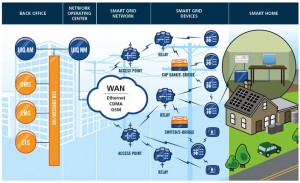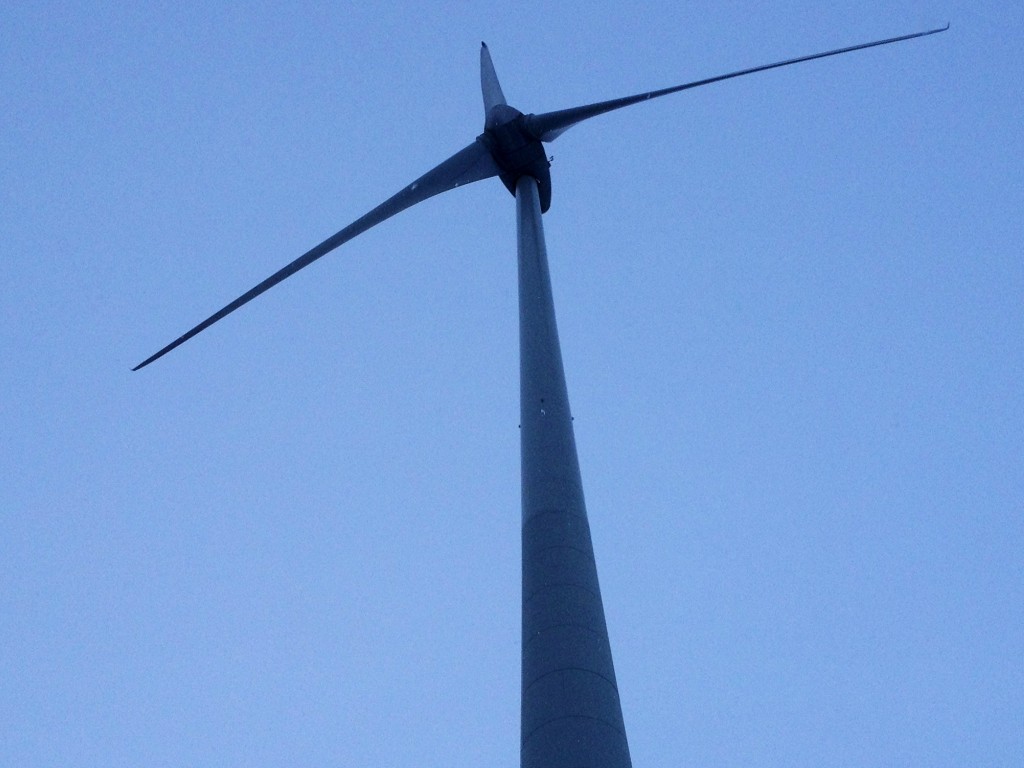Search Results for Tag: EU
Exploring the North – rare earths crucial for renewable energy
Below the Scandinavian snow cover, there are even more resources (apart from ice) that make the North special. Mining is a big deal in this region, especially in Sweden. From copper, iron ore to gold, the country is rich in minerals and metals – in fact, it is the largest mining region in Europe. So it’s not that surprising to find some real precious treasures in the Swedish ground – rare earths. They are not only important for smartphone chips and laptop processors, but also play a crucial role in renewable energy technology and thus in energy transition, helping the world to emit less CO2.
These non-renewable resources for renewable energy technology have strange names – dysprosium can be found in magnets that are used to run generators in wind power stations. Ytterbium is used for tubes in reactor technology, neodymium is important for the engines of electro- and hybrid-cars. Terbium can in turn be found in semiconductors important for building solar cells.
They are all found in Norra Karr and Olserum, two (potential) mining sites in Sweden. They are owned by the Canadian mining company Tasmet, which has applied for permission to mine in Norra Karr and is exploring the site in Olserum. Both are the only (so far known) sites in the European Union, where rare earths can be found. So far, the largest producer is China – producing 97 percent of the world’s rare earths in 2009. These metals are used all around the world and demand is projected to rise from 130,000 tons per year in 2012 to 186,000 tons in 2015. One already senses where problems might arise.
At the end of 2010, China restricted export of rare earths for the first time, putting the EU’s energy strategy at risk. What’s more, car manufacturers such as General Motors or Toyota searched for (and claimed to nearly have found) alternatives to become more independant. But so far, there don’t not seem to be alternatives that are feasible on a large scale. Which is why, even small deposits are still lucrative to mine and researchers are keen on finding new ways of mining.
Now you might think this isn’t my problem but rather that of big manufacturers. Well, you are almost right. We all have small earth desposits in old computers, TV monitors and outdated mobile telephones stored in our cellars and attics. Aware of possible shortages of the metals, the electronics industry is aiming to develop feasible recycling methods for rare earths that are still not in place.
So, if some day we do have these proper recycling methods in place, keep your attic-treasures in mind…they just might contribute to something big:
Ban on plastic bags?
“Fifty years ago, the single-use plastic bag was almost unheard of. Now we use them for a few minutes and they pollute our environment for decades,” says Janez Potocnik, Environment Commissioner of the the European Union. Each European uses 500 of these bags each year, most of them are used just once. In 2008 alone a total of 3.4 million tonnes of plastic bags were produced in Europe, that makes the same weight as two million cars.
Starting this week (18. May) the European Commission is seeking a solution. The approach is planed to be made with the help of European people and the bags manufacturers. The Commission calls everyone to a online-poll. Finally a tax or a ban on plastic bags is considered. The Commission called for suggestions on how to deal with the billions of bags used in the European Union each year. The public consultation will close at the end of August.
Extinction in Europe

Biodiversity is important to protect, especially in the world’s rainforests, oceans and mountain ranges where we often find rare species. But biodiversity is important in “ordinary” places, too – like continental Europe. The region boasts a lot of its own unique species, like the Iberian lynx in Spain (pictured above) and the Bavarian pine vole in the Alps. But those animals might not be around much longer.
A new report from the European Union shows that hundreds of species in Europe are now facing extinction. In fact, that assessment includes about up to a quarter of the species native to the continent. All types of animals and plants could vanish, including birds, reptiles, mammals and butterflies.
The problem stems from a variety of factors, including pollution and climate change. The EU has set forth some targets to protect Europe’s biodiversity, like restoring ecosystems. But there is no funding to back those proposals, so some critics don’t believe anything will change.
Smart Grids

As more and more countries start to integrate renewable energy into the mix, the need for smart grids is also growing. What are smart grids? They’re a type of electricity network controlled by digital technology–and that network runs straight from a power plant right into your home. The idea is to make the flow of electricity more reliable and efficient AND be able to better integrate alternative energy sources, like wind power, solar energy, etc.
One of the most important parts of smart grids is actually the intelligence aspect. The technology allows energy consumers to actually track how much energy they use, and when. So that means, you can actually keep track of your own energy ‘behavior.’ It sounds a bit confusing, but you can read more about how smart grids work on the EU’s dedicated website.
There is one catch, though. Privacy protection advocates are worried that your energy information–how much electricity you use, when you use the most, etc.–might not be secure with smart grids. Basically, they believe smart grids could give big energy companies access to information about you that they can store and use for other purposes.
What do you think? Do you think privacy is a big concern when it comes to smart grids? Why?
The Best in Sustainable Innovation
We told you about the EU Sustainable Energy Week that took place April 11th-15th and all the events that took place, right? Well, one of the last events of the week was the Sustainable Energy Europe Awards presentation. The prizes honor the best of the best in sustainable energy innovation in Europe. This year, 6 different projects were tapped as the top in their field.
The "Solar Decathlon Europe" from Madrid's Autonomous University won the award for best communication. It pits universities from around the world against each other as they compete to build the best and most innovative energy self-sufficient houses. "The Strawberry Tree" from Serbia won the award for the best consuming project. It involves a public solar-powered cell phone charging station in central Belgrade that also raises awareness about environmental issues and educates people about renewable energy sources.
One of the most active projects to be honored was the "Cycling City Councillors" (or Stadtradeln) from right here in Germany! This project, which won the traveling award, is as easy as it sounds: it focuses on promoting an easy, reliable and eco-friendly mode of transportation–the bicycle. Local leaders team up with citizens to go car-free and emissions-free, and it's been a huge success so far.
You can read about the rest of the Sustainable Energy Europe Awards here. Which one do you like the best? Or do you know of a cool, award-worthy project that wasn't honored?












Feedback